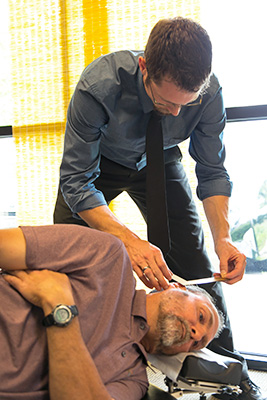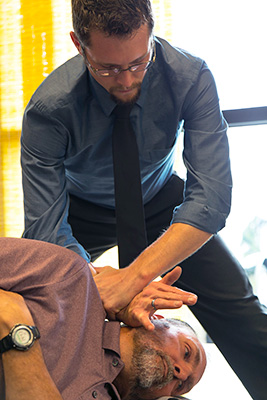
Vertigo is a false feeling of movement, while osteoporosis is a condition in which the bones become weak and break easily. Is there a connection between the two? Before you visit a Vancouver upper cervical chiropractor for help with your vertigo or osteoporosis, it is vital to get an answer for this question.
A recent study published by the American Academy of Neurology did confirm a connection between vertigo and osteoporosis. Vertigo brings the sensation that you or your environment is spinning, even without any actual movement. Benign paroxysmal positional vertigo (BPPV) is the most widespread form of vertigo. This type of vertigo causes a temporary period of spinning sensation when you move or shake your head too quickly, like when you roll over in bed.
On the other hand, osteoporosis happens when you lose the quality and density of your bone mass. Another condition called osteopenia, which is due to mild thinning of the bones, results in low bone mass but is not as severe as osteoporosis.
The connection between these two conditions and vertigo may have something to do with the age of the people affected as these health conditions are more common in older people.
The study also revealed a fascinating finding. Men who have osteoporosis were twice as likely to experience vertigo, while women were three times more likely. The same results were observed in people with osteopenia. One possible reason could be the reduction in estrogen levels in a woman’s body due to aging, which results in reduced bone density. Women over the age of 50 are the most affected as estrogen and bone mass are rapidly decreasing during this age.
What the study failed to look at was the relationship between vertigo and a misalignment in the upper part of the neck, particularly the C1 and C2 vertebrae. If a misalignment exists in this crucial area, it can put the brainstem under pressure, resulting in the sending of distorted messages to the brain about what the body is experiencing. For instance, the brainstem can tell the brain that the body is in motion, even when it’s not. This can bring on vertigo.
Here at Balanced Living in Vancouver, Washington, we relieve symptoms of vertigo and help the body heal from the damage caused by neck misalignments. Contact us to see what we can do to help you with your vertigo.
To schedule a consultation with Dr. Joe Perin, call our Vancouver office at 360-569-1740. You can also click the button below.
If you are outside of the local area, you can find an Upper Cervical Doctor near you at www.uppercervicalawareness.com.


